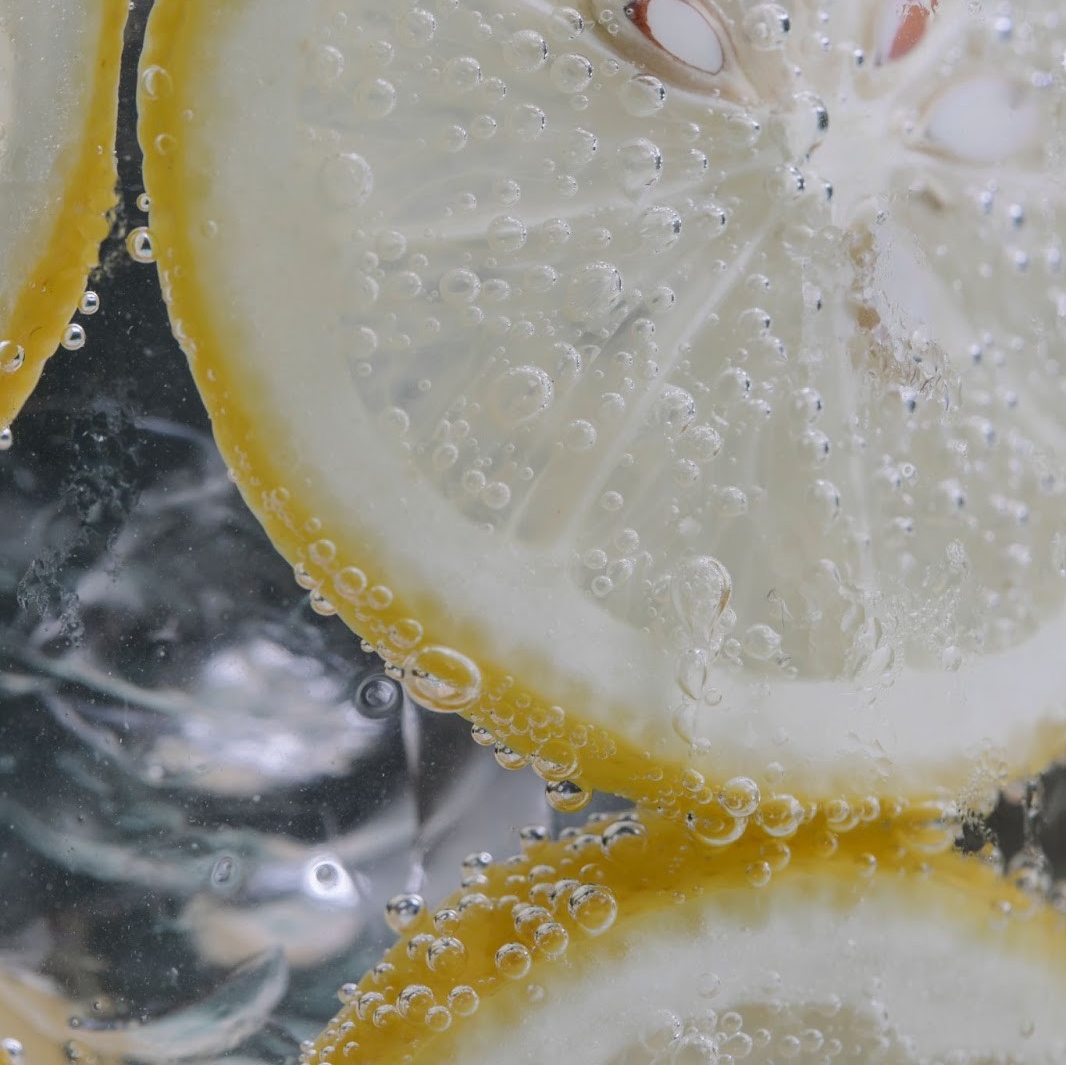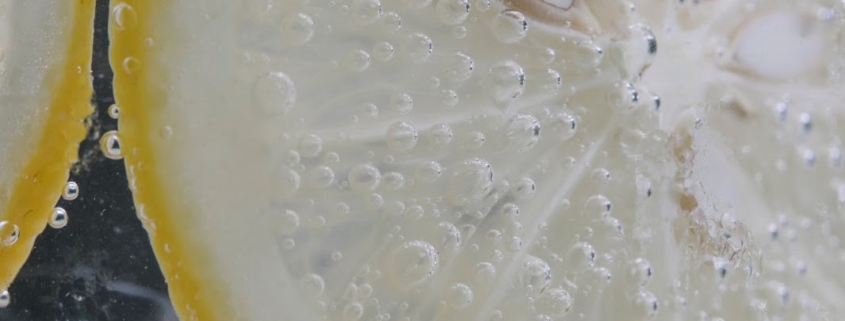Your Definitive Guide to Fizzy Water: They’re Not All Made Equally
Club Soda vs. Seltzer vs. Sparkling Water vs. Tonic: What’s the Difference?
There’s a bevy of bubbling beverages out there, and we don’t blame you if you’re having a tough time telling them all apart. They might look the same in a glass, but those fizzy waters are not all made equally. (Remember Anne Hathaway in The Devil Wears Prada staring at those identical blue belts? It’s kind of like that.)
People tend to use terms like sparkling water, seltzer, club soda, and tonic water interchangeably. But here’s the thing: there can be a surprising amount of sugar or sodium or other minerals in your bubbly water depending on which beverage you choose. So, we decided to create the ultimate guide to fizzy water. That way, you can be hydrated, educated, sated — and know what you’re drinking.

Mineral Water vs. Sparkling Water
Lesson #1: Sparkling water is the catch-all term for water that has bubbles in it. And mineral water is one kind of sparkling water. Mineral water is carbonated naturally due to the water’s composition, which can include magnesium, calcium, sodium, potassium, manganese, and some sulphuric compounds. The mineral content will vary based on the specific source. This gives it a unique flavor profile that has been popular — and prized — throughout history.
For centuries, people have visited thermal baths and hot springs, soaking themselves in mineral-infused water. As far back as Roman times, mineral water was bottled and traded, and the water quickly became popular for its purported health benefits.
The Perrier mineral water spring, located in the French volcanic region of Vergèze, became legendary long before becoming a popular water brand. And the word “seltzer” comes from the renowned Selters region of Germany, famous for its mineral baths. Speaking of seltzer….
Seltzer Water vs. Soda Water
Seltzer is a term that we now use for the man-made version of sparkling water. It’s water that has been infused with carbon dioxide — same as the stuff we also call “soda water.” So that solves the seltzer water vs soda water mystery. They’re the same thing, and these two terms can be used interchangeably.
Let’s take it back to the late 1700s when chemists began experimenting with carbonation… After much trial and error, they discovered a way to infuse carbon dioxide into water. Joseph Priestley first impregnated water with bubbles by leaving it near the surface of beer in fermenting vats. This gave birth to all sorts of boutique fizzy drinks, and the popularity of these “man-made” mineral waters led to the rise of the soft drink industry. In 1783, Johann Jacob Schweppe founded Schweppes, and thus began the mass-market production of soda water.
At first, carbonation was achieved with a chemistry set of additives ranging from sodium bicarbonate to other minerals. But over time this process has evolved into simply dissolving carbon dioxide into water to make it fizzy.
Seltzer or soda water can aid in digestion, and it can be as hydrating as regular water. In some cases, it can be slightly more acidic than tap or bottled water. That has led to the concern about its effect on tooth enamel — but that really becomes more of an issue with soft drinks or sodas that are loaded with acidic juice (such as lemon or lime) or sweeteners.
Club Soda vs. Carbonated Water
Now, here is where things can get a bit confusing. If you’re asking yourself, “Aren’t club soda and carbonated water (aka seltzer or soda water) the same thing?” The answer is close — but no cigar. Compare them side by side, and you might be shocked to discover the somewhat salty flavor of club soda.
Depending on the manufacturer, club soda can contain potassium sulfate, sodium chloride, disodium phosphate, or sodium bicarbonate. Those ingredients try to mimic the qualities of naturally-occurring mineral water. Unlike soda water, club soda formulas can vary, so you also may have to do some taste-testing to find your preferred flavor.
Club soda has been used in cocktail making for decades, so that’s why it continues to remain in widespread use. But the higher sodium content and unique flavor profile don’t make it as popular to drink on its own. Soda water or carbonated water will usually have a cleaner taste, which most people prefer for everyday drinking.
Tonic Water vs. Soda Water
Tonic water is in its own unique category and tastes very different from the other sparkling waters we’ve discussed. This fizzy drink combines soda water, sugar, and quinine. Derived from the Cinchona tree, quinine lends its unique combination of bitter and sweet to tonic water.
Quinine has been touted as a remedy for diseases like malaria for centuries. While not actively promoted as a cure for malaria today, quinine is an antiparasitic that is still used in the treatment of lupus and arthritis. The popularity of gin and tonics can be traced back to soldiers stationed in tropical climates; they were encouraged to drink quinine for its disease-fighting properties, so they mixed it with soda water, sugar, and gin to make its bitter taste more palatable.
In the pantheon of sparkling beverages, tonic water really stands apart in its own category since it has such a distinctive flavor and can contain a significant amount of sugar.
So Where Does That Leave Us?
Who would have thought that fizzy beverages could be so similar and yet so different? Now that we’ve sorted out all the terms and types of bubbly waters out there, you can make an educated decision about what you choose to drink.
As for Hint, our sparkling waters are carbonated at our bottling facilities, and we pride ourselves on the quality of our ingredients and our water. The delicious, well-rounded taste of Hint sparkling water can only be made with exceptionally pure water. To meet our standards for purity and great taste, our regional Hint bottlers use reverse-osmosis — as well as deionization and ultra-violet purification in some cases — to create a refreshing drink that is worthy of our outstanding flavors and sparkling waters.
And as with all of our beverages, our sparkling waters have zero calories. Hint delivers refreshment without sugar, diet sweeteners, calories, or preservatives, and our ingredients are vegan and free of nuts, soy, gluten, and MSG.



